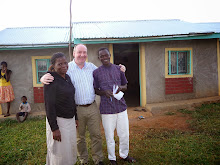The country had been an outpost of the British Empire since 1895. European farmers became very wealthy, taking native lands in order to farm tea and coffee in the fertile central highlands and shipping the produce to satisfy the demands of the home market. Under British rule Kenyans were banned from farming tea or coffee themselves in order to protect the price on behalf of the settlers.
In the years that followed the second world war, when Kenya was an important British base, the indigenous population began to speak out against the minority rule imposed by the colonial leaders. Famous and often bloody uprisings through the 1950's saw awful violence committed by all sides and it was clear the the situation could not continue. Jomo Kenyatta, though he denied involvement in the Mau Mau, was convicted at trial and imprisoned in 1953, being freed 8 years later.
Kenyatta ruled Kenya from independence in 1963 until his death in 1978, guiding the country through its formative years.
We have been working in Kisumu for 12 of those fifty years of independence and in that time have seen many changes. The introduction of free primary education was a huge step forward, though some families still struggle with the costs of uniforms, equipment and food. Access to health care and clean water is a significant challenge, in both rural and city areas although a large pipeline program is underway in Kisumu, pumping water from the lake and bringing it to within easy reach of many more people in the city and its outskirts.
Above all, we are proud of our Kenyan boys and girls, children who are growing up part of the country of their birth, proud of their heritage and their roots.
As I made my way back through Jomo Kenyatta International Airport I saw on the television screens through the terminal that the international news channels were full of reports of the death of Nelson Mandela, a huge figure on this continent. Many tributes were being paid to him, a man who saw a future where men and women of all races, colours and religions worked and strove side by side for a better future.
One contributor, a british news reporter who had met him many times, said of him that he "had the ability to see you as the person you could be, not as the person that you were".
If I wish one thing from this trip, it's that more of us could see the beautiful children who walk the streets of this country for the person they could be, that we might strive together to enable a better future for them. That they, like their country before them, might find their independence from the captivity of poverty, the despair of drug use, the blindness of hunger and the mourning and grieving of sickness.
For children like Daniel and Collins at university, Truphena graduating her course, Moses, Patrick, Noah, Michael and many others in apprenticeships, or Victor, resettling at home with his mum and dad after years of separation, those days are just beginning.
My hope and prayer is that many will follow where they have led.
Isaiah 61:1-3
The Spirit of the Sovereign Lord is upon me
because the Lord has anointed me
to proclaim good news to the poor.
He has sent me to bind up the broken hearted,
to proclaim freedom for the captives
and release from darkness for the prisoners,
to proclaim the year of the Lord's favour
and the day of vengeance of our God,
to comfort all who mourn
and provide for those who grieve in Zion
to bestow on them a crown of beauty
instead of ashes
the oil of joy
instead of mourning
and a garment of praise instead of a spirit of despair.
They will be called oaks of righteousness,
a planting of the Lord
for the display of his splendour.
Isaiah 61:1-3
The Spirit of the Sovereign Lord is upon me
because the Lord has anointed me
to proclaim good news to the poor.
He has sent me to bind up the broken hearted,
to proclaim freedom for the captives
and release from darkness for the prisoners,
to proclaim the year of the Lord's favour
and the day of vengeance of our God,
to comfort all who mourn
and provide for those who grieve in Zion
to bestow on them a crown of beauty
instead of ashes
the oil of joy
instead of mourning
and a garment of praise instead of a spirit of despair.
They will be called oaks of righteousness,
a planting of the Lord
for the display of his splendour.



No comments:
Post a Comment